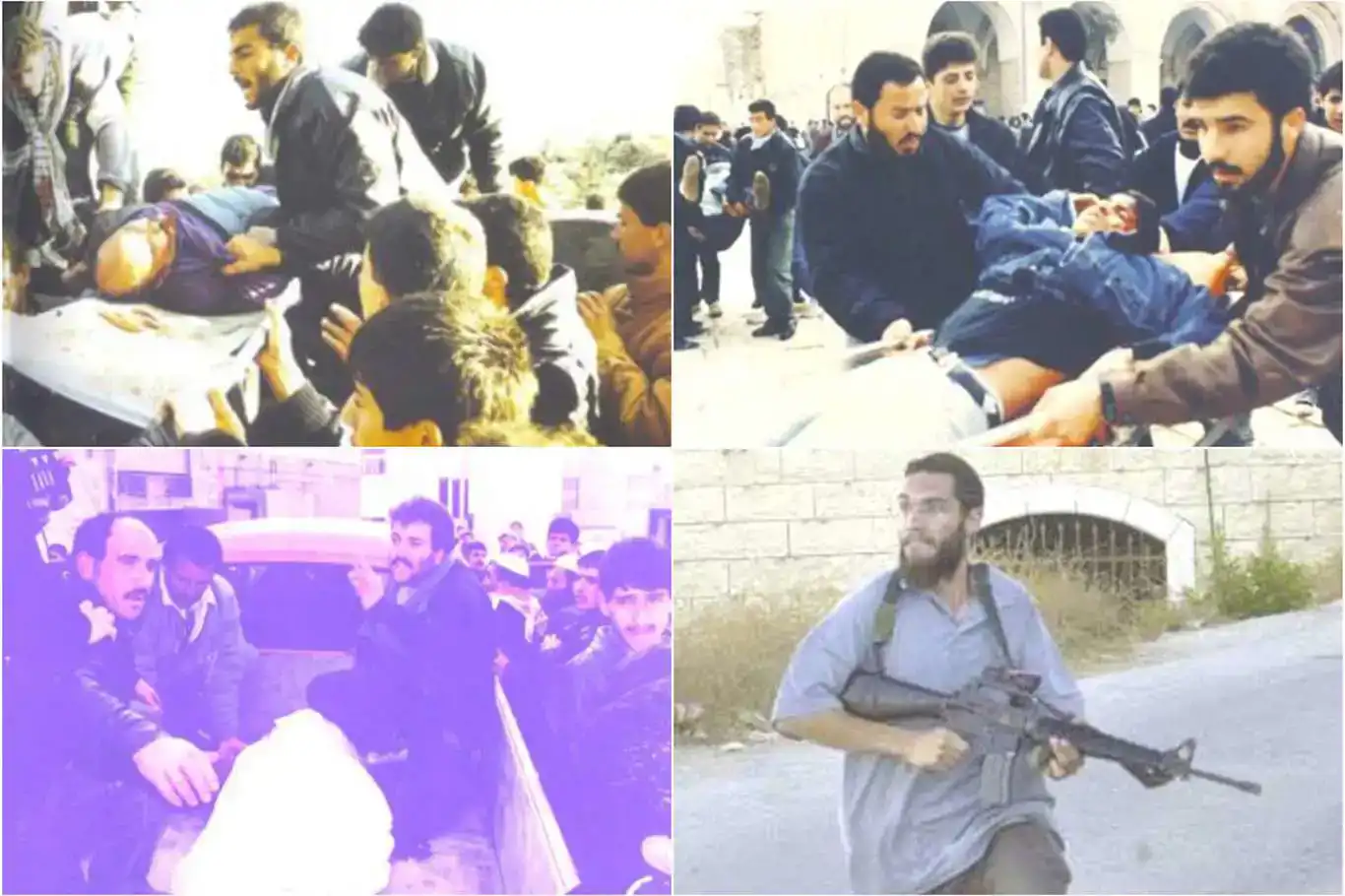31 years on: The unforgotten wound of the El Khalil Massacre


Today marks 31 years since the horrific El Khalil Massacre, a dark chapter in the ongoing struggle of the Palestinian people. On February 25, 1994,
During the sacred month of Ramadan, as Muslims gathered for the peaceful act of morning prayer at the Ibrahim Mosque in the city of El Khalil (Hebron), a brutal attack was carried out, leaving 67 worshippers martyred and nearly 300 others injured.
A Massacre Planned to Erase Palestinian Presence
The city of El Khalil, one of Palestine’s most sacred places and home to the revered Ibrahim Mosque, has long been a target of Zionist occupation forces. After Jerusalem, El Khalil became a primary focus of Zionist expansionist policies, with the ultimate goal of seizing the Ibrahim Mosque and turning it into a Jewish synagogue.
On that fateful morning of the 15th of Ramadan, Palestinian worshippers, in a state of pure devotion, were shot from behind while bowing in prayer. The attack was carried out by Baruch Goldstein, an extremist settler, but evidence and testimonies from survivors make it clear that the massacre was not the act of a lone fanatic—it was a calculated crime facilitated by Israeli occupation forces.
Witness Testimonies Expose Israeli Complicity
Eyewitnesses from that day reported suspicious activity that suggested Israeli forces were complicit in the attack. A Palestinian who survived the massacre recalled:
"While we were making the first rakat, a Jewish man in military uniform entered. He had a headset in his ears. He started shooting at us. Another person beside him was reloading his weapon as the magazine emptied. I had been attending morning prayers regularly, and every day, 30 to 40 Israeli soldiers were stationed there. But that day, only seven soldiers stood at the outer door, and the inner door, which was always guarded, was left unprotected. When the attacker opened fire, the soldiers outside entered and threw tear gas at us instead of stopping the massacre."
In addition to the attack inside the mosque, Israeli forces prevented medical aid from reaching the wounded, further proving that this massacre was not an isolated incident but part of a broader strategy of ethnic cleansing against Palestinians.
The Role of Israeli Media in Covering Up the Massacre
The massacre was deliberately downplayed by Zionist-controlled media, which framed it as an "individual action" rather than an orchestrated act of state terrorism. Palestinian resistance to Israeli aggression was misrepresented as "terrorism," while the slaughter of innocent worshippers was dismissed as the act of a single extremist. However, survivors and human rights groups confirm that such massacres are systematically planned to intimidate, expel, and erase the Palestinian presence.
Hamas Condemns the Massacre
The Islamic Resistance Movement, Hamas, issued a strong condemnation, stating:
"The massacre carried out by Zionist killers in the blessed month of Ramadan, on a holy Friday, in the city of Khalilurrahman, at the Ibrahim Mosque while Muslims were praying, is a clear demonstration of their hatred for Islam and Muslims. This attack was not just aimed at Palestinians but at the very heart of Islamic civilization and faith."
Who Was Baruch Goldstein?
Baruch Goldstein was not an anomaly but a symbol of Zionist ideology and the settler-colonial project in Palestine. An American-born extremist, he illegally settled in occupied Palestinian territory and was an active member of the Kach terrorist organization. A devoted follower of the notorious terrorist rabbi Meir Kahane, Goldstein was not just a radicalized individual but part of an extremist movement that continues to receive protection and support from Israeli authorities.
The Aftermath: A Mosque Under Siege
Rather than being held accountable, Israeli authorities allowed the crime to serve their expansionist agenda. After the massacre, the Ibrahim Mosque was closed for over nine months. When it was reopened, half of it had been converted into a synagogue, effectively dividing the sacred site. Despite the so-called "Hebron Protocol," which grants Muslims access to the entire mosque for just ten days a year, Israeli forces frequently block Palestinian worshippers, detain them, and impose restrictions similar to those seen at Al-Aqsa Mosque in Jerusalem.
The El Khalil massacre is a painful reminder of the ongoing oppression and systematic violence Palestinians face under Israeli occupation. Despite attempts to erase their existence, Palestinians continue to resist, holding onto their land, their faith, and their unwavering determination for justice and freedom. (ILKHA)
LEGAL WARNING: All rights of the published news, photos and videos are reserved by İlke Haber Ajansı Basın Yayın San. Trade A.Ş. Under no circumstances can all or part of the news, photos and videos be used without a written contract or subscription.
It has been thirty-two years since the village of Başbağlar, nestled in the mountainous region of Erzincan, Türkiye, was thrown into the depths of unimaginable horror.
As the world marks the 100th anniversary of the execution of Sheikh Said of Palu and his 47 companions, Muslims across the globe are gathering to honor a defining moment in Islamic resistance history.
The Hijrah—the historic migration of Prophet Muhammad (peace be upon him) from Mecca to Madinah in 622 CE—stands as a luminous milestone in Islamic history, igniting the flame of hope in the hearts of early Muslims and serving as an enduring example for all generations of believers.
Türkiye today marks the 63rd anniversary of the May 27, 1960 military coup—a day many regard as a deep betrayal of democracy, justice, and the national will.